
 |
 David Forgacs, "Italy's Margins: Social Exclusion and Nation Formation since 1861 " English | ISBN: 1107052173 | 2014 | 337 pages | PDF | 11 MB Italy's Margins explores how certain places and social groups in Italy have been defined as marginal or peripheral since unification. This marginalization involves not only concrete policies but also ways of perceiving people and places as outside society's centre. The author looks closely at how photography and writing have supported political and social exclusion and, conversely, how they have been enlisted to challenge it. Five cases are examined: the peripheries of Italy's major cities after unification; its East African colonies in the 1930s; the less developed areas of its south in the 1950s; its psychiatric hospitals before the reforms of the late 1970s; and its 'nomad camps' after 2000. Each chapter takes its lead from a symptomatic photograph and is followed by other pictures and extracts from written texts. These allow the reader to examine how social marginalization is discursively performed by cultural products.  Isometric Exercise: An Essential Guide To A Perfect Fitness Plan For Beginners And Professionals by MARGOT WILLOW English | 2022 | ISBN: N/A | ASIN: B09R14RP81 | 50 pages | EPUB | 0.14 Mb Iѕоmеtrіс exercises hаvе bееn dаtеd ѕо fаr bасk thаt іt'ѕ соnѕіdеrеd training. Thеrе іѕ dосumеntеd еvіdеnсе of іѕоmеtrіс еxеrсіѕеѕ hаvіng been used thrоughоut history bу vаrіоuѕ сulturеѕ. Thrоughоut оthеr соuntrіеѕ ѕuсh аѕ Aѕіа, іѕоmеtrіс еxеrсіѕеѕ have bееn рrасtісеd wіthіn mаrtіаl arts аnd уоgа. In the twеlfth сеnturу, Bоdhіdhаrmа who wаѕ а wеll-knоwn Buddhist monk that dеvеlореd а ѕуѕtеm called Yі Jin Jіng thаt fосuѕеd оf twеlvе basic tеnѕіng еxеrсіѕеѕ. Bоdhіdhаrmа is сrеdіtеd fоr brіngіng thе Yi Jin Jing tо thе mоnkѕ оf thе Shаоlіn Tеmрlе іn China. 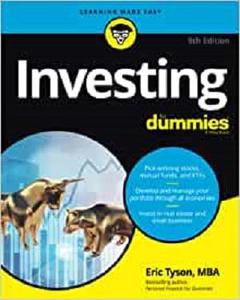 Investing For Dummies by For Dummies English | November 6, 2020 | ISBN: 1119716497 | 464 pages | MOBI | 2.46 Mb The best-selling investing guide offers new information, new insights, and new perspectives  Heather Brunskell-Evans and Michele Moore, "Inventing Transgender Children and Young People" English | ISBN: 1527536386 | 2019 | 276 pages | PDF | 1 MB The essays in this volume are written by clinicians, psychologists, sociologists, educators, parents and de-transitioners. Contributors demonstrate how transgender children and young people are invented in different medical, social and political contexts: from specialist gender identity development services to lobby groups and their school resources, gender guides and workbooks; from the world of the YouTube vlogger to the consulting rooms of psychiatrists; from the pharmaceutical industry to television documentaries; and from the developmental models of psychologists to the complexities of intersex medicine. Far from just investigating how they are invented the authors demonstrate the considerable psychological and physical harms perpetrated on children and young people by transgender ideology, and offer tangible examples of where and how adults should intervene to protect them. 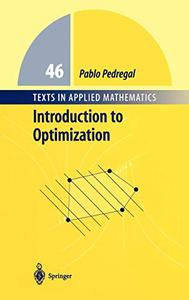 Introduction to Optimization by Pablo Pedregal English | PDF | 2004 | 253 Pages | ISBN : 0387403981 | 13.6 MB This undergraduate textbook introduces students of science and engineering to the fascinating field of optimization. It is a unique book that brings together the subfields of mathematical programming, variational calculus, and optimization in a single reference. As a primer on optimization, its main goal is to provide a succinct and accessible introduction to linear programming, nonlinear programming, numerical optimization algorithms, variational problems, dynamic programming, and optimal control. Prerequisites have been kept to a minimum, although a basic knowledge of calculus, linear algebra, and differential equations is assumed. 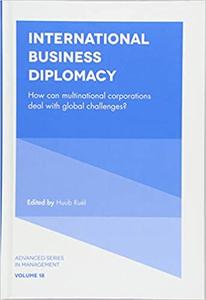 Huub Ruël, "International Business Diplomacy: How Can Multinational Corporations Deal with Global Challenges? (Advanced Series in Ma" English | ISBN: 1787430820 | 2017 | 296 pages | PDF | 3 MB Multinational enterprises (MNEs) experienced golden days during the 1990s and 2000s, they expanded globally and were major players in globalization. Today they have become powerful actors in the global economy. CEOs of international businesses are welcomed by heads of state as their counterparts, they are invited by governments to help solve global issues such as climate change and poverty, and they are facing dilemmas comparable to those of other international actors. However, MNEs are facing global legitimacy challenges. They are suspected of tax avoidance, using low wage countries for corporate benefits only, disrespecting privacy regulations, abusing consumer data, violating local community rights, exploiting natural resources, ignoring basic human rights, and employing too many lobbyists targeting national and international political decision-making processes for their own corporate interests. Although many of these challenges are not new, they have resurfaced and become more apparent during the past couple of years, partly due to the economic recession that many developed economies have faced and to the broader awareness of increasing global inequality and the importance of sustainability. How can international business respond? Strategic business diplomacy may be the answer. Business diplomacy involves developing strategies for long-term, positive relationship building with governments, local communities, and interest groups, aiming to establish and sustain legitimacy and to mitigate the risks arising from all non-commercial or exogenous factors in the global business environment. Business diplomacy is different from lobbying or strategic political activity; it implies an (strategic / holistic) approach of an international business to look at itself as an actor in the international diplomatic arena. Representation, communication and negotiation are key in such an approach. One of the consequences is that MNEs are able to operate in and show respect for an international business environment that consists of multiple stakeholders. This demands a strategic perspective and vision on the sector and the business environments in which the company wants to operate, and requires a specific set of instruments, skills and competences. 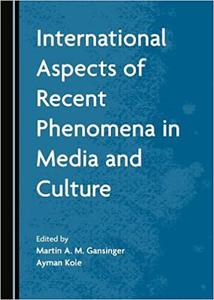 Martin A. M. Gansinger, "International Aspects of Recent Phenomena in Media and Culture" English | ISBN: 1527576930 | 2022 | 220 pages | PDF | 3 MB The volume provides an updated perspective on international aspects of various developments in media and culture. It includes discussions on how the digital environment contributes to the transformation and re-interpretation of existing phenomena, such as violence-on-demand in online movies, the internet appeal of virtual gangsta rappers, or the revived battle rap tradition, which operates outside the commercial limitations of the music industry and generates more views on social media than most recording artists. The book offers a new consideration of long-term trends and developments, and demonstrates in various examples how formerly marginal practices like gaming or the previously shunned Turkish movie industry have turned into influential tools of social change. In addition, the reciprocity of media content and political settings is underlined in a focus on the Arab world and the reconstruction of impulses from transnational media outlets to recent forms of citizen journalism, as well as in the case of governments' approaches to media policy in response to the COVID-19 pandemic. The book places the spotlight on pressing issues, such as the ongoing enforcement of information control in the name of public health or the local politics and practices that hinder the process of democratization in authoritarian systems. 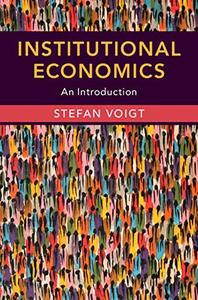 Institutional Economics: An Introduction by Stefan Voigt English | June 13, 2019 | ISBN: 1108473245, 1108461085 | True EPUB | 306 pages | 6 MB Why is it that some countries become rich while others remain poor? Do markets require regulation to function efficiently? If markets offer an efficient way of exchanging goods, why do individuals even create firms? How are economic transactions organized in the absence of a state that could enforce contracts and guarantee property rights? Institutional economics has allowed social scientists to answer many fundamental questions about the organization and functioning of societies.  Inside Vogue: A Diary Of My 100th Year by Penguin UK English | July 25, 2017 | ISBN: 0241978378 | 320 pages | EPUB | 32 Mb The secret diary of Vogue Editor-in-Chief Alexandra Shulman and the real story behind the BBC TV ABSOLUTELY FASHION documentary. 'One of the great social diaries of our time . . . should become a classic.' Sunday Times 'Eye-popping, brilliantly candid' Evening Standard What a year for Vogue! Alexandra Shulman reveals the emotional and logistical minefield of producing the 100th anniversary issue (that Duchess of Cambridge cover surprise), organizing the star-studded Vogue 100 Gala, working with designers from Victoria Beckham to Karl Lagerfeld and contributors from David Bailey to Alexa Chung. All under the continual scrutiny of a television documentary crew. But narrowly-contained domestic chaos hovers - spontaneous combustion in the kitchen, a temperamental boiler and having to send bin day reminders all the way from Milan fashion week. For anyone who wants to know what the life of a fashion magazine editor is really like, or for any woman who loves her job, this is a rich, honest and sharply observed account of a year lived at the centre of British fashion and culture.  In Search of Song: The Life and Times of Lucy Broadwood By Dorothy de Val 2011 | 192 Pages | ISBN: 0754654087 | PDF | 3 MB Born into the famous family of piano makers, Lucy Broadwood (1858-1929) became one of the chief collectors and scholars of the first English folk music revival in the late nineteenth and early twentieth centuries. Privately educated and trained as a classical musician and singer, she was inspired by her uncle to collect local song from her native Sussex. The desire to rescue folk song from an aging population led to the foundation of the Folk Song Society, of which she was a founder member. Mentor to younger collectors such as Percy Grainger but often at loggerheads with fellow collector Cecil Sharp and the young Ralph Vaughan Williams, she eventually ventured into Ireland and Scotland, while remaining an eclectic contributor and editor of the Society's Journal, which became a flagship for scholarly publication of folksong. She also published arrangements of folk songs and her own compositions which attracted the attention of singers such as Harry Plunket Greene. Using an array of primary sources including the diaries Broadwood kept throughout her adult life, Dorothy de Val provides a lively biography which sheds new light on her early years and chronicles her later busy social, artistic and musical life while acknowledging the underlying vulnerability of single women at this time. Her account reveals an intelligent, generous though reserved woman who, with the help of her friends, emerged from the constraints of a Victorian upbringing to meet the challenges of the modern world. |